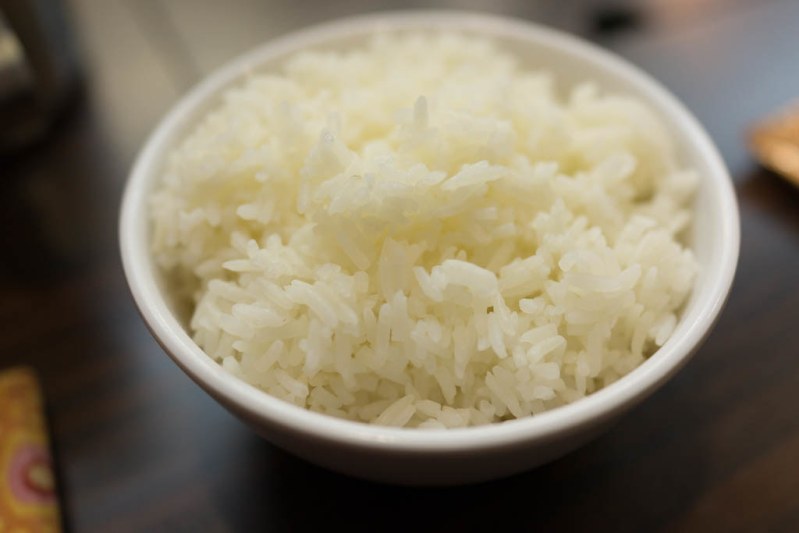
A core staple of most of the world’s population, rice is the most consumed food in the world. We love rice for many reasons – its diversity and adaptability, its ability to satisfy with a humble amount, the fact that it lasts in the pantry forever, and that it’s still one of the cheapest foods you can buy in a grocery store full of ingredients whose prices continue to rise at an alarming rate.
If we have one gripe with rice, it’s that it can be tricky when it comes to reheating. After a few hours in the refrigerator, rice transforms from soft, pillowy, steamy comfort to dry and clumpy heaps of tough, sticky granules. Of course, rice can be transformed back to its former glory after an overnight stay in the fridge, but the process can be a tricky one, full of fickle microwaved cold spots and uneven rehydration. Thankfully, though, there is a better way to reheat rice. And all it takes is a strainer and some hot water.
How to reheat rice
Step away from the microwave.
- For perfectly reheated rice that tastes just as fresh as it did the first time around, simply place the rice in a mesh strainer set over a large bowl in the sink, and pour hot water over the top, letting the hot water fill the bowl underneath.
- Using a spatula or wooden spoon, stir the rice, making sure to break up any clumps.
- Once stirred, pour the hot water that has fallen into the bowl below the strainer over the top of the rice once again.
Voila. Perfectly reheated, rehydrated rice that tastes and looks as though it just came out of the rice cooker.
It really is that simple – pouring hot water over leftover rice. Of course, there are a number of ways you can heat your water, be it on the stovetop or, yes, even the microwave. But our favorite method for heating water quickly is in an electric kettle. Just plug that baby in and let the magic happen.

How long can you store cooked rice?
According to this handy FoodKeeper App from FoodSafety.gov, both white and brown cooked rice can be stored in the fridge for four to six days before it’s time to toss it. The app even provides a safety timeline for eating frozen cooked rice (six months), but culinarily speaking, we wouldn’t recommend taking that route. Uncooked rice will last ages in the pantry, so you can stock up without stuffing the freezer full of cooked food.
Cooked rice should be stored in an airtight container in the refrigerator once it’s been fully cooled. If your leftover rice is of the takeout variety, make sure to take the extra step of transferring it to Tupperware before storing it. It may be tempting to leave the food in that convenient cardboard container, but it will last much longer with an airtight lid.




